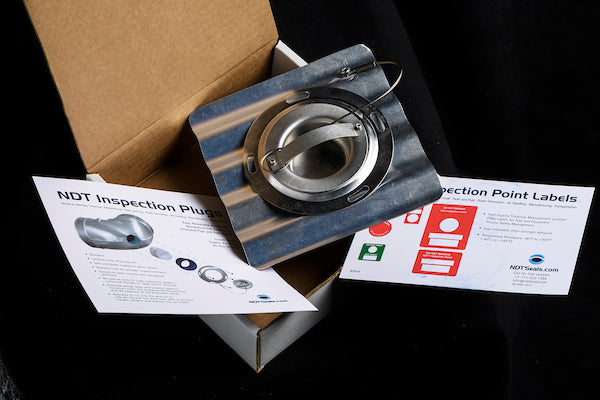Ultrasonic thickness testing (UTT) is a vital tool in the fitness-for-service (FFS) evaluations and integrity assessments of refineries and chemical plants. These evaluations ensure that equipment such as storage tanks, piping, and pressure vessels can continue to operate safely under their current conditions, despite corrosion, erosion, or other forms of degradation. UTT allows for the non-invasive measurement of wall thickness, helping to assess the remaining life of assets and plan maintenance activities before critical failures occur.
In environments like refineries and chemical plants, equipment is often exposed to harsh conditions, leading to the gradual thinning of metal surfaces. Regular ultrasonic thickness measurements provide essential data that informs FFS evaluations, which are critical for preventing downtime, ensuring safe operation, and complying with industry standards such as API 579 or ASME FFS-1.
The Critical Role of Consistent Measurement Locations
To maintain accurate and reliable data for FFS evaluations, it is essential that UTT is conducted at consistent measurement points over time. Inconsistent or poorly labeled locations can lead to inaccurate assessments, increased risk of failure, and potential safety hazards. Consistency allows plant operators and inspectors to track corrosion rates and identify trends in metal thinning. When UTT is performed at the same precise locations year after year, the data provides a clearer picture of equipment health, allowing for more informed decision-making regarding repairs, replacements, or continued service.
However, challenges arise when personnel or contractors change over time. Without clear and durable markings, future inspectors may measure in different locations, leading to inconsistencies that can undermine the accuracy of integrity assessments.
The Need for Durable Inspection Plugs and Labels
To combat these challenges, the use of high-quality thickness measurement location labels and inspection plugs is crucial. These markers ensure that UTT measurements are consistently taken from the same locations, even as personnel change. Durable labels and plugs—specifically designed to withstand the harsh environments of refineries and chemical plants—help maintain consistency, accuracy, and the long-term integrity of the data.
Plugs equipped with seals, metal caps, and lanyards can protect against moisture and corrosion under insulation, preserving the exact UTT locations over many years. While low leachable labels designed for high temperatures and corrosive environments allow for easily identifiable UTT locations over many years. This ensures that future contractors or employees can easily find and measure at the correct locations, improving the overall reliability of the data and minimizing risks to plant safety.
Put simply, ultrasonic thickness measurements play a pivotal role in the fitness-for-service evaluations and integrity assessments of critical equipment. The consistent use of high quality UTT location labels and inspection plugs helps ensure long-term reliability and safety, allowing refineries and chemical plants to operate efficiently and safely over time.


